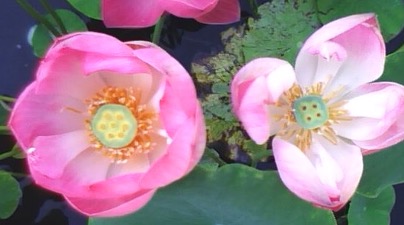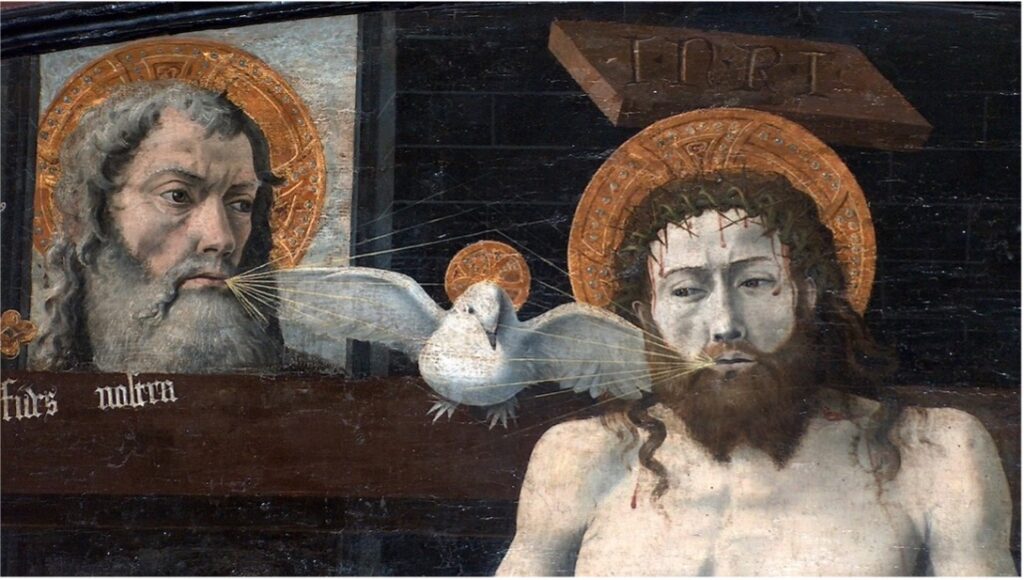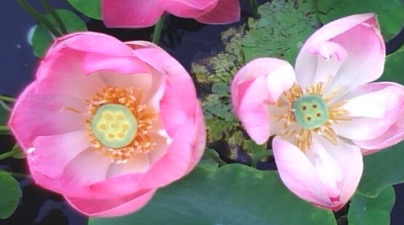What do we mean by the transformation of impressions?
There is a food other than ordinary food. This is the food of impressions, which are penetrating into man ceaselessly from many directions of his environment. Only the elect know what these impressions are, and can direct them. — Bahauddin
As Ouspensky explained in his book, In Search of the Miraculous, impressions serve as the third type of nourishment for the human machine. Physical food is the first form of food and air the second. Most people readily understand the first two types of nourishment—physical food and air—but often overlook impressions as a form of sustenance, even though they are the most vital.
The Role of Attention in the Transformation of Impressions
When reading a book, watching a movie, or engaging with a computer, images and information flood the mind. This triggers a cascade of thoughts and emotions. These impressions spark energy within, sometimes even resulting in inspiration. As a result, some may feel compelled to write a book themselves, others to start a new business. Some may even embark on the journey of awakening one’s dormant higher self.
In contrast, when passively sitting in a car or train with no external activity or conversation, no impressions enter, apart from those in the immediate surroundings, such as the passing landscape. In such a situation, one is often not actively looking through one’s eyes but, instead, listening to the internal chatter of the many ‘I’s. When not stimulated by impressions, no energy is created, resulting in a dull state that frequently ends in the first state of consciousness—ordinary sleep. This serves as a striking example of man’s mechanical nature and underscores the crucial role impressions play in shaping our mental and emotional states and our vital energy.
The Refinement of Impressions
Gurdjieff explained that one mechanically digests food and air; these transform into finer hydrogens or energy. Impressions, however, even when stimulating, are not digested in man’s normal state. When impressions are not digested, it means that the energy they carry is not refined or transformed within us. Instead, these impressions remain raw, leading to scattered thoughts and emotions, rather than deepening one’s understanding.
The German poet Rainer Maria Rilke provides an example of the transformation of impressions through a personal experience he describes below, taken from one of his letters. Though written in prose, the letter is rich with poetic imagery. As a poet, Rilke expresses his inner state not directly but through symbolic language, choosing to describe himself in the third person rather than the first. This indicates that higher centers were present, observing the lower self.
Rilke on the Soul’s Receptivity to Impressions
It could have been little more than a year ago, when, in the castle garden which sloped down fairly steeply towards the sea, something strange encountered him. Walking up and down with a book, as was his custom, he had happened to recline into the more or less shoulder-high fork of a shrub-like tree, and in this position immediately felt himself so agreeably supported and so amply reposed, that he remained as he was, without reading, completely received into nature, in an almost unconscious contemplation.
Little by little his attention awoke to a feeling he had never known: it was as though almost imperceptible vibrations were passing into him from the interior of the tree. . . . It seemed to him that he had never been filled with more gentle motions, his body was being somehow treated like a soul, and put in a state to receive a degree of influence which, given the normal apparentness of one’s physical conditions, really could not have been felt at all.
Nevertheless, concerned as he always was to account to himself for precisely the most delicate impressions, he insistently asked himself what was happening to him then. And almost at once found an expression that satisfied him, saying to himself, that he had got to the other side of nature.
Everywhere and more and more regularly filled with this impulse that kept on recurring in strangely interior intervals, his body became indescribably touching to him and of no further use than to be purely and cautiously present in, just as a ghost, already dwelling elsewhere, sadly enters what has been tenderly laid aside, in order to belong once more, even though inattentively, to this once so indispensible world. Where else his dwelling place was would have been a thought beyond him, but that he was only returning to all this, was standing in this body as in the embrasure of a quitted window, looking out and beyond.
— Rainer Maria Rilke
Higher States and the Refinement of Impressions
Gurdjieff taught that self-remembering causes the transformation of impressions, allowing us to more deeply experience them. This refinement can result from intentional effort or, as in this case of Rilke, occur spontaneously. In this state, ordinary moments take on a miraculous quality. When one does not digest impressions, however, they fail to penetrate deeply. It is easy to overlook familiar impressions, in particular. One dismisses them with a fleeting glance, or immediately eliminate them through the habitual reactions of one’s personality.
For example, one passes by a tree or a garden on one’s way to work every day. Yet one passes without noticing the beauty of its flowers, because one is usually listening to internal chatter. One day, because one’s state of consciousness is higher than usual, one notices a flower. Its beauty touches one’s essence, and one stops to look at it. As one takes in the impression intentionally by dividing one’s attention, one is catapulted in a higher state, experiencing the miracle of the being in the moment.

One of the Chinese characters for ‘breath,’ 「息」 (xi), beautifully represents this process of refining impressions. It contains the characters for “heart” 「心」 and “self” 「自」. These symbolize an upward movement of energy from the heart to the higher self.
When one truly takes in an impression by being present to it, the transformed energy of the impression nourishes the higher self. It is fascinating that the character for ‘breath’「息」 also means “rest.” When the higher self is present, the mechanical mind quiets, and one enters a state of inner peace. In this stillness, beyond the physical breath, the breath of life, comes into being.
The breath of life is the consciousness of life. – Upanishads
The inhalation of the breath of life is the refinement of impressions. It causes transformation into nourishment for the higher centers. When one experiences higher centers, one gains a deeper understanding of oneself and the world. This newfound understanding may be expressed in different ways. Some may share their insights by teaching others about awakening. Others may influence those around them simply through their silent presence. Some may create art that embodies concepts related to inner transformation and, like Rilke, express it in poetry or prose. This outward expression is the exhalation of the breath of life—a movement of refined energy back into the world.

The Trinity, from the Boulbon Altarpiece, Louvre
Walther Sell has been a student of the Fourth Way for decades. He is the author of a website on Oriental esoteric teachings, Inner Journey to the West. See other articles by Walther for the FourthWayToday.org: Walter Sell articles.
